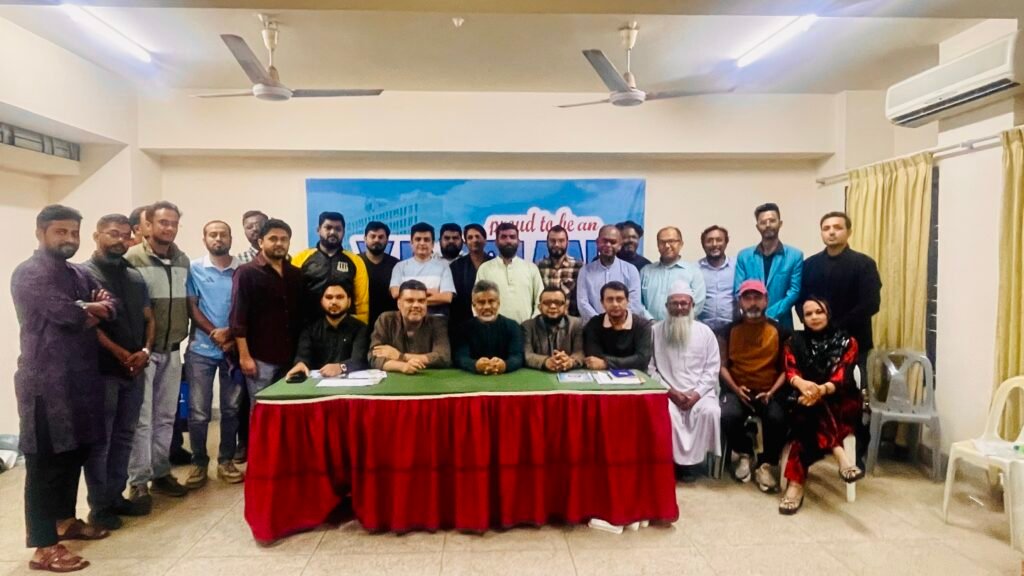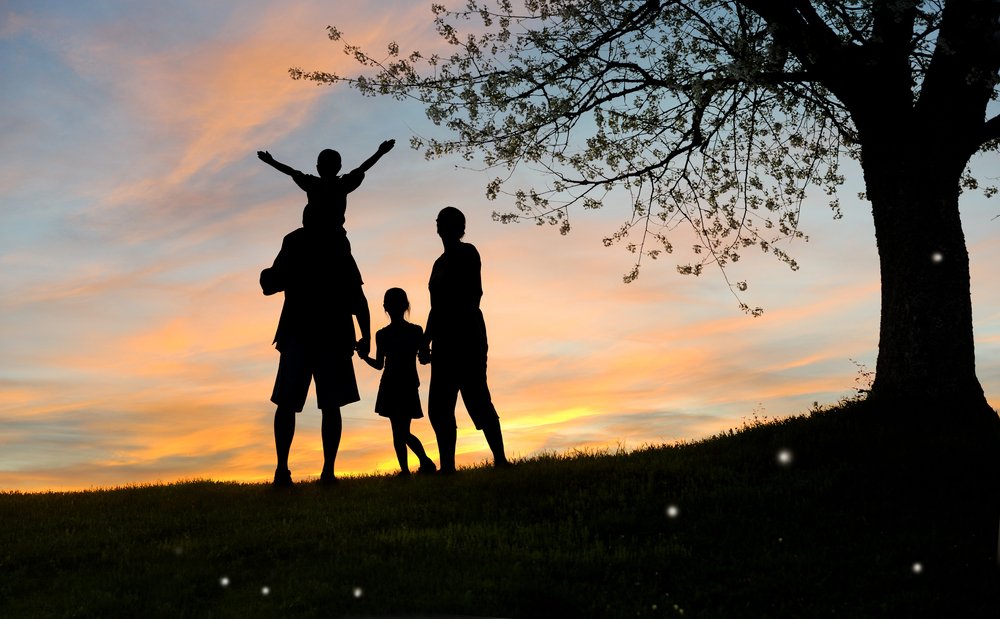
Introduction to Matrimonial Platforms
Matrimonial platforms represent an innovative solution to the age-old challenge of finding a suitable partner for marriage. Traditionally, matchmaking was conducted through family, friends, or community networks, heavily influenced by cultural norms and expectations. However, with the advancement of technology and the rise of the internet, matrimonial platforms have evolved, providing a modern approach that accommodates today’s fast-paced lifestyle. These online platforms serve as intermediaries connecting individuals seeking marriage, thus transforming the traditional landscape of matchmaking.
Initially, matrimonial services were primarily available through classified ads in newspapers, community bulletins, or word of mouth among families. As social dynamics shifted and technology advanced, online matrimonial services emerged, allowing individuals to search for potential partners based on shared interests, cultural values, and compatibility factors. The evolution of matrimonial platforms has been significant in making the process more accessible, efficient, and tailored to personal preferences.
In contemporary society, the significance of matrimonial platforms has grown substantially across various cultures. These platforms are used not only for connecting individuals within similar cultural backgrounds but also for bridging different ethnicities and belief systems. Users benefit from a wide range of features, including personalized profiles, advanced search filters, and communication tools that facilitate interaction. Consequently, matrimonial platforms have reshaped marriage practices and societal norms related to partner selection.
The growing acceptance of online matchmaking has also contributed to a broader understanding of diverse relationships, shifting perceptions of how marriages are formed. By enhancing engagement among individuals from varied backgrounds, matrimonial platforms encourage cross-cultural connections, resulting in a richer tapestry of relationships. This introduction contextualizes the evolution and importance of matrimonial services, setting a foundation for exploring their opportunities, benefits, and associated limitations in depth.
Cultural Perspectives on Matrimonial Platforms
Matrimonial platforms have emerged as an essential tool for individuals seeking relationships that align with their cultural and personal values. Different cultures around the world have unique traditions regarding marriage, and these cultural perspectives significantly influence how matrimonial platforms are utilized. While traditional marriage practices often involve family arrangements and community involvement, modern matrimonial platforms are adapting to contemporary societal norms. This shift reflects a growing acceptance of technology as a means of finding suitable partners, while also respecting deep-rooted cultural values.
In many Eastern cultures, marriage is viewed not only as a union between two individuals but also as a bond between families. Therefore, matrimonial platforms operating within these contexts often include features that accommodate family involvement. For instance, users may have the option to create profiles that highlight family values, community ties, and cultural backgrounds. This ensures that the platform aligns with traditional practices, while simultaneously embracing modern conveniences. Conversely, in Western cultures, where individualism is emphasized, matrimonial platforms may focus more on personal preferences and compatibility metrics, highlighting aspects such as interests, lifestyles, and future aspirations.
The adaptability of matrimonial platforms is vital in respecting cultural norms while catering to evolving relationship dynamics. Some platforms focus on creating spaces for specific communities, such as religious or ethnic groups, ensuring that users remain connected to their cultural heritage. This provides individuals with the opportunity to engage in a dating environment that feels familiar yet is enhanced by technology. Ultimately, the challenge lies in striking a balance between honoring traditional marriage customs and accommodating the demands of modern life. By understanding and respecting these cultural perspectives, matrimonial platforms can continue to thrive and facilitate meaningful connections across diverse demographics.
Benefits of Using Matrimonial Platforms
Matrimonial platforms have revolutionized the way individuals approach the search for a life partner. One of the primary advantages these platforms offer is access to a larger pool of potential partners. Traditionally, individuals were limited to their immediate social circles, which often resulted in a narrow selection of suitable matches. However, by utilizing matrimonial websites, users can connect with individuals from diverse backgrounds and regions, significantly enhancing their chances of finding a match that aligns with their preferences and values.
Furthermore, the convenience offered by matrimonial platforms is unparalleled. Users can browse profiles, communicate with potential partners, and even arrange meetings from the comfort of their homes. This flexibility is especially beneficial for individuals who may have busy schedules or reside in areas with limited social opportunities. The online nature of these platforms allows for a timely and efficient matching process, enabling individuals to focus their efforts on serious relationships without the pressures of traditional dating norms.
Additionally, matrimonial platforms often incorporate sophisticated tools and algorithms that identify compatibility between users. These tools assess various factors such as interests, values, and lifestyles, providing users with recommended matches that are more likely to be successful. This personalized approach can lead to more meaningful connections and decrease the likelihood of rejection, which can be emotionally taxing.
Moreover, engaging with matrimonial platforms can contribute positively to an individual’s emotional and psychological well-being. By expanding their social circles through online interactions, users are likely to experience increased self-esteem and confidence. The ability to explore potential partnerships in a non-confrontational setting can reduce the anxiety associated with traditional dating, allowing individuals to form genuine connections comfortably.
Opportunities Created by Matrimonial Platforms
Matrimonial platforms have emerged as significant facilitators in the modern quest for companionship and marital connections. One of the primary opportunities they create lies in their ability to connect individuals from diverse backgrounds. By leveraging technology, these platforms break geographical barriers, enabling users to engage with potential partners from various regions, cultures, and traditions. This exposure fosters a better understanding of different lifestyles, beliefs, and values, which is essential in an increasingly globalized world.
Moreover, matrimonial websites actively promote cross-cultural marriages, offering a melting pot for individuals seeking to broaden their horizons. These platforms are designed to cater to a wide array of demographics, including age, religion, and lifestyle preferences. This customizability ensures that users can easily find like-minded individuals who share similar aspirations, regardless of cultural or religious differences. As a result, it nurtures relationships that not only honor individual beliefs but also embrace diversity.
An additional opportunity presented by matrimonial platforms is their provision of extensive support services. Many websites offer features such as personalized matchmaking, counseling, and advice related to marriage preparation, which can be invaluable to users. By providing these resources, matrimonial platforms become more than mere networking sites; they transform into comprehensive support systems that guide users through the sometimes overwhelming process of finding a suitable partner. This holistic approach increases users’ chances of successful matches, ultimately leading to stronger marital bonds and enhanced satisfaction.
In essence, matrimonial platforms serve as vital conduits for building meaningful relationships. They not only empower individuals to explore diverse connections but also actively promote inclusivity and understanding across cultures. In their role as modern matchmakers, these platforms are reshaping the traditional perceptions of marriage while creating new opportunities for love and partnership.
Challenges and Limitations of Matrimonial Platforms
Matrimonial platforms, while offering significant opportunities for individuals seeking partners, are accompanied by a set of challenges and limitations that merit attention. One notable issue is misrepresentation. Many users may present themselves in an overly favorable light, whether through outdated photographs or exaggerated personal traits. This discrepancy can lead to disappointment upon meeting in real life and can erode trust among users. Such misrepresentations not only affect personal connections but can also harm the reputation of the platforms themselves.
Another challenge is the potential for scams. As digital environments become more prominent for matchmaking, the risk of fraudulent activities increases. Some individuals may exploit these platforms for financial gain or other dishonest motives, seeking to deceive unsuspecting users. Users must remain vigilant to identify red flags, such as requests for money or overly personal inquiries from new acquaintances, which can signal a potential scam.
Moreover, dependency on technology presents its own set of limitations. While online matrimonial services offer convenience, they can inadvertently create a reliance on digital interfaces for communication. This dependency may hinder individuals’ abilities to foster organic interactions, ultimately detracting from authentic relationship building. Additionally, some users may experience frustration with the technology itself, including navigating complex algorithms or encountering software issues, which can undermine the overall experience.
Lastly, cultural stigma associated with online matchmaking remains a considerable barrier in some societies. Despite the growing acceptance of matrimonial platforms, certain cultural perspectives maintain skepticism towards online relationships, perceiving them as inferior or untraditional. This stigma can deter potential users from exploring these valuable resources, thus limiting their opportunities in finding a suitable partner. Understanding and addressing these challenges is crucial for improving the effectiveness of matrimonial platforms on a global scale.
Regional Insights: Matrimonial Platforms in Different Countries
Matrimonial platforms serve as critical social tools across various cultures, each adapting to local customs, values, and preferences. In India, the matrimonial landscape is dominated by platforms that cater to diverse communities, ensuring that factors such as caste, religion, and regional language play a significant role in matchmaking. Notably, websites like Shaadi.com and Bharat Matrimony have tailored their offerings to reflect these intricacies, enabling users to choose profiles that align with their cultural backgrounds. This localized approach has not only fostered successful matches but also helped preserve traditional customs within modern contexts.
In the United States, matrimonial platforms often embrace a more liberal and diverse approach. Websites like Match.com and eHarmony focus primarily on personal preferences rather than cultural constraints. Users are encouraged to express their interests and values, leading to matches based on compatibility rather than societal expectations. This shift highlights a growing trend where individuals seek relationships that prioritize personal connection over traditional background, reflecting the multicultural fabric of American society.
Contrary to these patterns, Japan presents a unique case where matrimonial services are often intertwined with societal norms around marriage. Platforms such as Omiai and Zexy focus on serious intentions and familial approval, thereby maintaining a focus on the cultural importance of marriage in Japanese society. These platforms emphasize detailed profiles and guarantee serious discussions about future marriage, which resonates with many Japanese users’ expectations of commitment.
In conclusion, matrimonial platforms across different countries reveal diverse operational methods molded by local customs and societal expectations. While India maintains a system rooted in tradition, the USA showcases a more individualistic approach, and Japan emphasizes serious intentions and family involvement. These regional adaptations not only reflect cultural nuances but also illustrate the evolving dynamics of relationships in the modern world.
The Role of Technology in Matrimonial Platforms
Technological advancements have significantly transformed matrimonial platforms, making them more efficient and user-friendly. At the heart of these advancements are sophisticated algorithms that leverage artificial intelligence (AI) and machine learning. These technologies enable matrimonial websites to provide personalized matchmaking services tailored to the preferences and values of users. By analyzing user data—including interests, personality traits, and previous interactions—these platforms facilitate connections that might not have been possible through traditional means. The result is a nuanced understanding of compatibility that goes beyond basic filters, enhancing the overall matchmaking process.
Moreover, the integration of data analytics enables these platforms to continually improve their services. As users engage with the platform, their behavior and feedback inform the algorithms, which can adjust recommendations in real-time. This iterative learning process not only increases the chances of successful matches but also fosters a sense of personalization that resonates with users. However, the utilization of such advanced technology brings forth critical discussions surrounding data privacy and security. Users often share sensitive personal information, which necessitates robust measures to protect this data from unauthorized access and potential breaches.
As we look to the future, the role of technology in matrimonial platforms is expected to expand even further. Innovations such as virtual reality (VR) and augmented reality (AR) may redefine how individuals interact and connect. Imagine virtual meetups where potential partners can engage in immersive environments, simulating real-life interactions while enjoying the safety of their homes. Such developments promise to enhance the user experience, bridging cultural gaps and expanding the reach of matrimonial services across different demographics.
In conclusion, the role of technology in matrimonial platforms is pivotal in shaping modern matchmaking experiences. While these advancements present numerous opportunities, they also introduce challenges that require careful attention, particularly regarding user privacy and security. Balancing innovation with responsible practices will be essential for the sustained success of these platforms.
Success Stories and Testimonials
Matrimonial platforms have emerged as a remarkable solution for individuals seeking companionship across diverse cultures. Numerous success stories stand as testament to their efficacy in forming meaningful relationships. For instance, Anisha, a software engineer based in Bangalore, shared her experience of utilizing a matrimonial site to find her life partner. Coming from a traditional background, Anisha was initially hesitant about online matchmaking. However, she found the process systematic and user-friendly, ultimately leading her to Rohan, an architect from Mumbai. Their shared interests and values culminated in a wonderful marriage, highlighting how matrimonial platforms can bridge cultural gaps while promoting shared values and compatibility.
In another inspiring story from the UK, Priya, an Indian expatriate, recounted her journey. Finding it challenging to meet potential partners in a foreign land, she turned to a matrimonial service dedicated to the Indian diaspora. She expressed that the platform not only offered her a wide array of profiles but also facilitated interactions that were respectful and intention-driven. Through the site, Priya connected with Arun, who had a similar cultural background and upbringing. Their relationship blossomed, and they eventually celebrated their wedding in a uniquely blended ceremony that honored both their cultures.
Additionally, testimonials from users underline the importance of these platforms in contemporary matchmaking. Siddharth, a user from Australia, commented on how matrimonial platforms allowed him to meet individuals he would not have encountered in traditional settings. His partner, Tara, echoed this sentiment, emphasizing the convenience and efficiency of online searches that helped them identify first compatibility, leading to deeper connections. These narratives not only illuminate the positive impacts of matrimonial platforms but also serve as encouragement for those considering online avenues for finding love. Such platforms represent a fusion of tradition and technology, offering diverse opportunities suited for modern-day matchmaking.
Future Trends in Matrimonial Platforms
The landscape of matrimonial platforms is poised for significant transformation as technology and societal dynamics evolve. With the rapid advancement of digital technologies and the increasing prevalence of online connectivity, the user demographics of matrimonial platforms are likely to diversify. Younger generations, accustomed to digital interactions, are expected to dominate the user base, bringing fresh expectations and behaviors to online matchmaking. This shift suggests an increased demand for features that cater specifically to younger individuals, such as mobile-friendly interfaces and social media integrations. Moreover, the rise of niche matrimonial platforms catering to specific communities or interests is anticipated, enabling users to find partners with shared background and values.
The impact of socio-economic factors will also play a crucial role in shaping the future of matrimonial platforms. As global socio-economic conditions fluctuate, individuals’ approaches to marriage and relationships may shift accordingly. In developing regions, as access to technology increases, more potential brides and grooms will turn to online platforms for matrimonial purposes. Conversely, economic uncertainties may lead to increased scrutiny regarding financial stability in match profiles, influencing priorities in partner selection. Additionally, changing career trajectories and remote work arrangements may alter traditional timelines for marriage, thereby impacting how people utilize matrimonial sites.
Cultural shifts are another critical component to consider. As societies become more globally interconnected, preferences for marriage may evolve, leading to a blending of cultural expectations. This amalgamation could give rise to platforms designed to facilitate intercultural matches, prioritizing compatibility over traditional background tellings. Furthermore, the increasing emphasis on individualism and personal choice within relationships may result in a greater focus on personality compatibility rather than conventional markers such as lineage or social status. Overall, the future of matrimonial platforms will be shaped by an interplay of technology, socio-economic evolution, and changing cultural narratives, creating a dynamic environment for individuals seeking meaningful connections.


